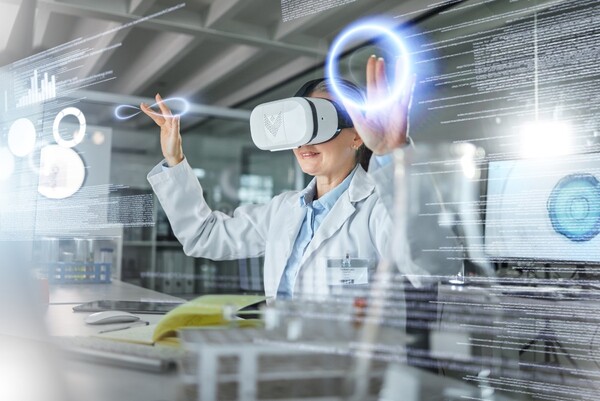
The Ministry of Food and Drug Safety has increased its budget by 2.34 billion won ($1.74 million) to help digital therapeutic devices (DTx) enter the market quickly.
The increased budget breaks down into 230 million won for innovative medical device technology support, 1.46 billion won for clinical, approval, and GMP for software medical devices, 400 million won for developing and providing clinical standard datasets, and 250 million won for selecting export support targets and promotion support.
The ministry said it would focus regulatory support on companies in the rapidly growing fields of artificial intelligence (AI) medical devices and digital therapeutic devices, providing full support for all processes from research and development to clinical trials, domestic and foreign licenses, quality management system conformity certification, and export promotion and support.
It also will provide technical support for the products of 30 companies preparing for designation as innovative medical devices to quickly enter the medical field with advanced technologies, from the designation of innovative medical devices to clinical trials and domestic and foreign licenses.
According to Article 21 of the Medical Device Industry Act, an innovative medical device that applies advanced technology has significantly improved safety and efficacy compared to existing medical devices or is expected to do so.
MFDS also plans to provide technical support, including research and development, clinical trial plan establishment, customized consultation for quality management system establishment and domestic and foreign licensing, and practice and training through specialized institutions for developers of software medical devices.
It also will provide training and up-to-date information on medical device safety management systems in major export countries, including the United States and Europe.
In addition, it will provide five clinical standard datasets developed with Korea University Guro Hospital last year so that AI medical device companies can utilize them for R&D and product performance verification and prepare five additional clinical standard datasets by the end of the year.
Clinical standard datasets are medical image datasets prepared through procedures, such as personal information anonymization and data labeling in consideration of disease distribution, disease grades, and stages, and treatment guidelines in medical images, and clinical standard datasets related to X-ray images (lung disease, heart disease), CT images (abdominal bleeding), MRI images (brain disease), and endoscopic images (stomach, colon) have been developed.
Besides, MFDS plans to select 10 export support companies in each field, including medical devices with new technology, in vitro diagnostic medical devices, image diagnostic equipment, and dental medical devices using software, promoting their excellence in connection with major domestic and international medical device exhibitions held this year.
MFDS will provide detailed information, including support targets and application information, through medical device-related organizations as soon as relevant procedures, like selecting private specialized organizations for promoting support projects in the medical device field this year, are finalized.
"Digital medical devices and related areas are sectors where Korea, as an information and communication (IT) powerhouse, has strengths and are the cornerstone for Korea to become a bio-digital health powerhouse," Minister of Food and Drug Safety Oh Yoo-kyung said.
Oh added that the government would support Korean medical device companies doing their best under difficult conditions to attain the national goal of a “dynamic economy driven by the private sector and pushed by the government."
Related articles
- YUHS unveils innovative DTx integration platform, revolutionizing personalized care
- [Top 10 Healthcare News in 2023 ③] The evolution of digital therapeutics in 2023
- ‘2024 will be 1st year of LifeSemantics’ entry into medical AI, DTx markets’
- DTx and AI treatments to get insurance benefits
- AimMed challenges to develop DTx for Galaxy Watch
- Number of DTx license applications since April remains ‘zero’
- Experts lament obstacles to expanding DTx prescriptions
- Korea approves 2 more DTx for vision improvement, respiratory rehabilitation

